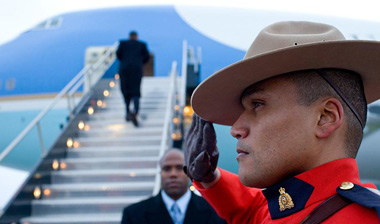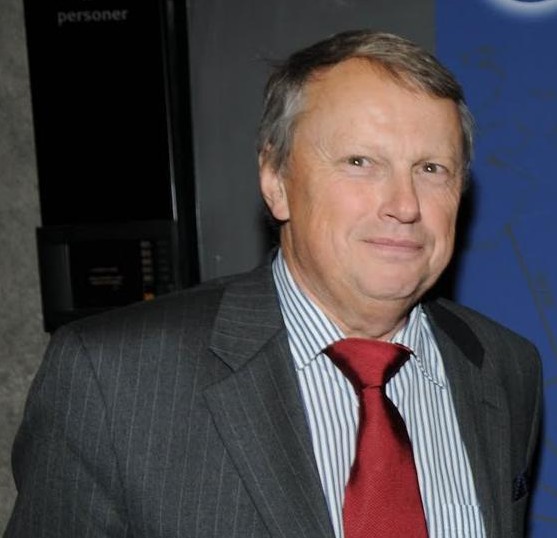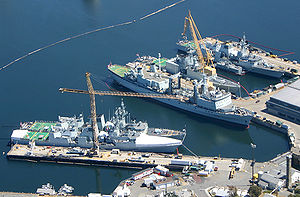
In the multi-polar, complex arena we call the ‘transatlantic community’, being a smaller member often leads to the accusation of being a “Transatlantic Community” free-rider rather than a contributor. Within this context, a free-rider is a country who receives a benefit that is greater than their relative contribution to the alliance. This stems from the mid-1960s, when defence economists focused on economic models of burden-sharing. The economic model of that time assumed that in an alliance great powers contribute more to collective defence than do small powers. Thus smaller members find they have little or no incentive to provide additional contributions to collective spending. Therefore, burden-sharing becomes disproportionate.
In the 1990s, foreign policy literature often suggested that Canada had become an “Atlantic free-rider” who enjoyed the benefits of collective defence without making substantial contributions to its maintenance. This assumption was due to the decision by the Canadian government to close its two forward-operating bases in Germany in 1994. Additionally, the common indicator for evaluating contribution was through a country’s’ level of defence spending. With 1.4 percent spent on defence, Canada ranked 13th in defense spending, the lowest of the middle powers. Canada was seen as an underperformer because other transatlantic countries assumed Canada was not spending enough on common defense–compared to other middle powers−and relative to benefits of being a part of the alliance. Fast-forward; almost two decades later, there still remains a prevailing stigma when it comes to Canada’s transatlantic relations, more specifically with regards to NATO, in which this middle-power state has become known as the “slacker of transatlantica”.
Yet, these charges are unfounded. Canada provides a great deal of active duty personnel, contributes a generous amount of money to the NATO budget, and supplies economic aid to Central and Eastern European Countries. In addition, Canada has invested an inordinate amount of military and economic resources to the coalition effort in Afghanistan. Past and present Canadian governments have taken the necessary steps to ensure it is an equal contributor to the transatlantic community based on its relative size and population. It is about time for this myth−Canada is a slacker in contributions to common defence−be laid to rest once and for all.
Canada has supplied active duty personnel in all NATO-led missions since the formation of the Alliance in 1949. However, some statistics might lead one to believe that Canada is not pulling its weight when it comes to military commitments. Current data regarding active duty personnel supplied by the U.S. Department of Defense ranks Canada in 11th place out of 18. In addition, between 1990 and 2001, Canada cut its active duty personnel by more than 30 per cent. While this may seem alarming and indicate that Canada is underperforming, when compared to other NATO countries, such as France, which reduced its armed forces by 33 per cent; the UK, 28 per cent; and the US, with 32 per cent; Canada’s reduction in active duty personnel is consistent with these countries that are not considered slackers. The majority of NATO allies have cut their armed forces to a degree, and Canada’s actions are comparable to that of its allies. Furthermore, when measured up to other middle powers, such as Belgium, which reduced its armed forces by 61 per cent; Netherlands 50 per cent; and Spain 49 per cent; Canada has cut the least amount of active duty personnel by percentage. Clearly, Canada is not the laggard of NATO. With technological advances and mechanization of many military tasks, the need for boots on the ground is dwindling. Canada can hardly be considered a freeloader when it punches above its weight as a middle power in supplying active duty personnel to NATO missions.
When it comes to burden-sharing, critics often focus on the contribution that each country makes to NATO’s total common funded budget. Here, Canada can justifiably be called the ‘shining star’ of the middle powers. It is the 6th largest contributor to NATO’s total budget, falling behind heavyweights such as the United States, United Kingdom, France, Germany, and Italy. That aside, where Canada really outperforms other NATO countries is in its level of defence spending in relation to its GDP: Canada is ranked 13th in the world with 1.4 per cent of its GDP spent on defense and yet, contributes more money to NATO than Norway, Belgium, Turkey, the Netherlands, and a host of other allied countries that have a much higher defence budget in relation to their GDP. So Canada performs above its relative capabilities; in other words, Canada shoulders a heavier financial burden of NATO’s common total budget than it should according to the share of defense spending as part of its total GDP.
NATO members’ economic aid to Central and Eastern European Countries, such as Poland and Ukraine during the post-Cold War Era was vital to sway former Soviet satellite countries to embrace liberal democracy and to prevent a power vacuum after Soviet collapse. Canada ranked 4th overall in foreign aid to Central and Eastern European Countries, only Germany, Denmark, and Norway surpassed Canadian spending. Canada can hardly be considered a free-rider in regards to foreign aid spending during this crucial time.

Canada’s involvement in Afghanistan has been paramount to regime change, stability, and state-building in a country where Canadian treasure has been lost in abundance. As of 2011, roughly 41,000 members of the Canadian forces have served in Afghanistan, $7.5 billion CAD has been spent on combat operations and $1.2 billion CAD on development assistance. David S. McDonough, a doctoral fellow at the Center for Foreign Policy Studies at Dalhousie University, brilliantly sums up Canada’s role in Afghanistan: “Canada has invested an inordinate amount of military and economic resources in the coalition effort in Afghanistan and has certainly paid a hefty price in the number of soldiers wounded and killed.” No critic can downplay Canadian involvement and leadership in Afghanistan, as it has been an essential coalition partner in the fight against terrorism.
Myth Busted
Canada has played, and will continue to play, a dominant role in NATO for years to come. The myth surrounding Canada being the “slacker of Transatlantica” or an “Atlantic free-rider” is misconstrued. While critics continue to point fingers at Canada’s decline in military capabilities and contributions to common defence over the past decade, this assessment ought to be considered in the context of what other NATO countries are currently practicing during peacetime. Current and future Canadian governments must continue along the existing path to ensure Canada is carrying its own weight in the transatlantic community. Canada has demonstrated it is not only far from a slacker, but is a model country to middle powers and a great contributor to the collective defence both militarily and financially.




